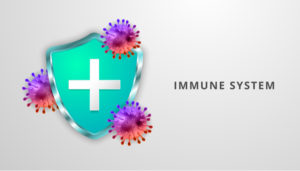Pandemic Report No. 7
We know that Covid-19 is particularly brutal to elderly people with underlying medical conditions, most of which adversely affect their immune systems. This is why nursing homes and assisted living facilities account for about 40% or more of the deaths from the pandemic. Almost everyone in them has one or more of those immune-suppressing conditions. That’s why they’re there—they’re too sick to take care of themselves, or be cared for, at home.
All statistics pertaining to the pandemic are suspect, as I’ve demonstrated throughout this pandemic series, but we have pretty convincing circumstantial evidence that even most of the victims outside of nursing homes and assisted living facilities have immune problems related to one or more of those underlying medical conditions, though they’re still able to live in the community at large. Most of them are over 50, but a few are younger.
Given the importance of our immune systems in keeping us in good health, and protecting us from the pandemic, one would think serious attention would be given to strengthening everyone’s immune systems before drugs and medical procedures are needed. But one would be wrong in that assumption. Very little attention is focused on strengthening natural immunity, in the mainstream media or even in the general medical community.
Given the emergency conditions in pandemic epicenters, some doctors and hospitals have been treating patients with intravenous vitamin C, for example, but there the focus is on a last-ditch effort to alleviate the symptoms and pain of people already hospitalized by Covid-19. That must be our priority, of course, but we should be focused as well on helping the general population before they are candidates for hospitalization.
While I have extensive experience as a writer, editor, and publisher in the medical field, I am not a physician or health professional, and this article does not constitute medical advice. You should consult a health professional you trust, hopefully one who is not focused only on drugs and surgery. I’m only telling you what has worked for me. I am in the most vulnerable age group, but without any of those immune-suppressing conditions. I am fully aware that could change tomorrow, but the preventive steps I outline here are why I am more concerned about the pandemic panic and over-reaction than I am about the virus itself.
There are many more immunity-boosting supplements to consider (do your research) but I’m going to concentrate here on the two I consider to be most important.
Vitamin C
There’s a reason I haven’t been getting colds or influenzas for 40 years: Vitamin C.
Well, that’s a little bit of an exaggeration. I did get the flu about 15 or so years ago—after I had taken the flu vaccine because it was being offered free. I never made that mistake again.
And I may have come down with minor colds once or twice in those 40 years, when I had become lax in my daily supplement routine. But I quickly realized my mistake, and I recovered swiftly by resuming my megadoses of the vitamin.
Vitamin C’s protection against colds and influenzas also works with other respiratory conditions, such as Covid-19, and many other medical problems. More on that in a moment.
I learned about the benefits of vitamin C in 1981, directly from the two-time Nobel laureate who popularized its use—Dr. Linus Pauling. I interviewed him extensively by telephone, and those interviews comprised three issues of my newsletter, Modern Health Report. Vitamin C has been my No. 1 supplement ever since.
There is no danger in taking megadoses of vitamin C because your body will tell you when you’ve reached your limit—with diarrhea (excess vitamin C gets flushed out of your body that way). If I reach that point, I simply lower my dosage somewhat.
With the advent of the 2019-2020 flu season, my maintenance dose of vitamin C was 6,000 mg/daily in tablet form. Then, when I started hearing about the coronavirus, I upped that to 12,000 mg/day, divided between equal doses of 6,000 mg in the morning and at dinner.
I’ve always taken the vitamin in tablet form, but lately I became aware of the greater impact of liposomal (liquid) vitamin C. Liposomal C is the strongest you can get without an intravenous vitamin C hookup. It costs more than tablets, but I have been impressed with its much greater absorption. I now take 6,000 mg in tablets in the morning, and a tablespoon of liposomal C at dinner. (But I’m a big man, and everyone should take into account their sex, weight, and body strength. Someone who is not presently taking it would undoubtedly want to start with smaller dosages and build up.)
Vitamin C is not a “cure” for Covid-19, but then there is no cure at present for the virus. Hospitals and doctors around the world are using it, however, to lessen the pain for those already with symptoms, and often to shorten their time in treatment. I am focused on using vitamin C to avoid getting to that stage requiring hospitalization.
A 2020 article in Medicine in Drug Discovery, published by Elsevier (a major publisher of medical journals) and written by a U.S. board-certified specialist, concludes that “high-dose oral VC provides certain protection against viral infection. Neither intravenous nor oral administration of high-dose VC is associated with significant side effect. Therefore, this regimen should be included in the treatment of Covid-19 and used as a preventative measure for susceptible populations such as healthcare workers with higher exposure risks” (emphasis added).
With the advent of the Covid-19 pandemic, the largest hospital system in New York State has been giving megadoses of vitamin C—including intravenous vitamin C—for coronavirus patients, reporting “tremendous” results. This chain operates 23 hospitals, including famed Lenox Hill Hospital on Manhattan’s Upper East Side — and says vitamin C is being “widely used” as a coronavirus treatment throughout the system.
And in China, where the pandemic started, hospitals in Wuhan, Shanghai, Guangzhou, and Guangdong are also administering vitamin C. Dr. ZhiYung Peng, chief of critical care medicine at Zhongnan Hospital in Wuhan, recently reported on the results:
- High dose intravenous vitamin C seems to reduce the inflammation of Covid-19 significantly.
- It seems to reduce Covid-19 patients’ ICU hospital stays.
- And it seems to reduce the mortality rate of Covid-19 patients, although the number of patients may be too small to draw conclusive mortality conclusions.
Dr. Peng also reports that all of the major hospitals in Wuhan are giving vitamin C powder to their healthcare providers.
Vitamin D3
Many people are aware of the importance of getting vitamin D3 outdoors with sunshine. But most adults have D3 deficiency, and my research leads me to believe that a daily dose of 4,000 IU a day is safe and combines with vitamin C to form a great immune-boosting cocktail.
I take vitamin D3 softgels. My present daily dosage is 100 mcg (4,000 IU).
The National Institutes of Health suggests 4,000 IU of D3 a day as the upper limit for adult males and females. “Most reports suggest a toxicity threshold for vitamin D of 10,000 to 40,000 IU/day” and “symptoms of toxicity are unlikely at daily intakes below 10,000 IU/day,” says the NIH, so I figure I am getting maximum protection without coming close to toxic levels.
A recent survey article on vitamin D3 reached these conclusions (emphasis added):
- “There are studies showing that Vitamin D sufficiency is important to reduce mortality in ventilated patients. There is a large and growing literature on vitamin D’s role in preventing viral infections and reducing their severity.”
- “There are studies suggesting that sufficient vitamin D reduces the risk of acute respiratory infections. Also, the literature supports the importance of vitamin D sufficiency in morbidity and mortality in critical care reducing settings.”
- And vitamin D is used to treat “other viral infections including influenza, HIV, Dengue, Epstein Barr, Hepatitis B, and Hepatitis C.”
A study of 212 confirmed Covid-19 patients in the Philippines showed that 85.5% of patients with sufficient vitamin D had mild cases, while 72.8% of patients who were deficient in vitamin D had severe or critical cases. And a study of 780 confirmed Covid-19 cases in Indonesia concluded: “When compared to cases with normal vitamin D status, death was approximately 10.12 times more likely for vitamin D deficient cases” (emphasis added).
Another review article in the National Institute of Health’s National Library of Medicine is titled “Evidence That Vitamin D Supplementation Could Reduce Risk of Influenza and Covid-19 Infections and Deaths.” And it recommends: “Randomized controlled trials and large population studies should be conducted to evaluate these recommendations.”
Dr. John C. Umhau is a public health specialist at the National Institutes of Health. In an article in MedPageToday he says vitamin D is one of the: “most studied and most important host factors impacting survival from Covid-19”
And Dr. Tom Frieden, former director of the Centers for Disease Control (CDC), says “given the high prevalence of vitamin D deficiency in this country, it is safe to recommend that people get the proper daily dosage of vitamin D.”
Bottom line: Vitamins C and D3 are useful palliative treatments for people testing positive for Covid-19 or already having symptoms. They are just as useful for building up a body’s immune system to maintain good health and as a preventative measure against many kinds of respiratory conditions. With no downside, they deserve consideration in this era of Covid-19 pandemic.
My Previous Articles on the Coronavirus Pandemic
- How Big of a Threat Is the Coronavirus? (March 26)
- How Bad Has the Pandemic Been? How Bad Will It Be? (April 6)
- An Economic Shutdown Based On…What? (April 15)
- Is Sweden’s Problem Coronavirus or Immigration? (April 21)
- Let the Lockdown End, County by County (April 27)
- Reopen the Economy and Protect the Most Vulnerable: We Can Do Both (May 4)
And see all my articles in this pandemic series.





